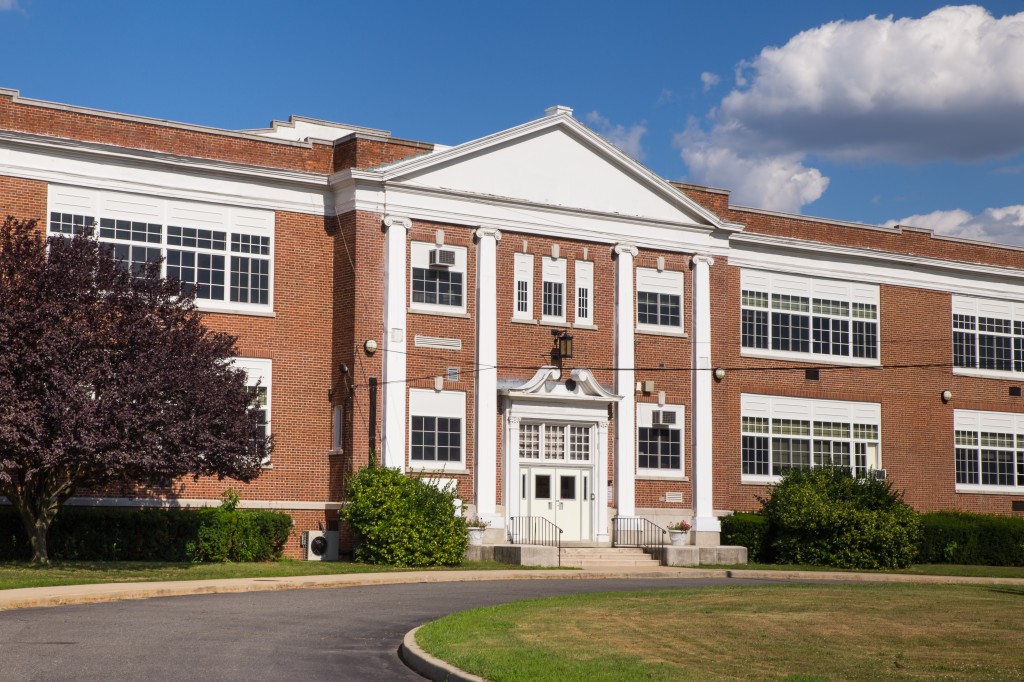
Can Catholic Schools in Massachusetts Maintain Catholic Views on Marriage?
Stanley Carlson-Thies
In a widely discussed decision, on Dec. 16, 2015, a Massachusetts judge ruled against Fontbonne Academy, which rescinded a job offer after it learned that the applicant had a same-sex spouse, although the state’s employment law includes an exemption for religious employers. Some have praised the decision as “the first of its kind in the country,” demonstrating that religious employers are not protected against charges of job discrimination in the context of same-sex marriage and sexual orientation. In fact, the decision sends no clear signal.
The Catholic girls school admits students of many faiths and requires only some teachers and staff to be Catholic, although requiring all staff to support the school’s Catholic mission. Matthew Barrett applied to be Food Service Director, not a position limited to Catholics, but, according to the decision, indicated his agreement when in a job interview he was informed that every employee is a “minister of the mission” and is expected to exemplify Catholic beliefs and values. After being offered the job, Barnett listed on a form his same-sex spouse as his emergency contact and then was informed by the academy that he could not be hired because of his same-sex marriage.
The court ruled that the academy’s decision not to hire a “qualified food service employee” because of his same-sex marriage violated the state’s sexual orientation nondiscrimination law, and that the academy was not eligible for the religious employer exemption nor could it avail itself of any constitutional defenses (e.g. association, religion). Simply calling an employee a “minister” does not evoke the “ministerial exception” unanimously upheld by the US Supreme Court in its 2012 Hosanna Tabor decision, the judge said, and the circumstances do not match those in the Dale decision of 2000 when the US Supreme Court upheld the dismissal of a gay Scout leader.
Massachusetts employment law has an exemption for religious employers. Or rather it has two, and they conflict, to the detriment of faith-based organizations. Some language exempts religious schools and other organizations from certain employment nondiscrimination requirements when they are acting to uphold their religious principles, but other language specifies that to be an exempt religious employer, the organization must be one that “limits membership, enrollment, admission, or participation to members of that religion.” As noted, Fontbonne does not hire nor admit only Catholics, allowing the judge to decide that it was not eligible for the exemption from the sexual-orientation nondiscrimination requirement.
The judge opined that the state’s interest in prohibiting sexual orientation discrimination is as compelling as its interest in ending racial discrimination, dismissing the differences and giving little weight to the government’s compelling, constitutional, interest in upholding religious exercise and thus in protecting the faith-shaped decisions of religious organizations. Nor did he consider it inappropriate to substitute his view for the school’s about whether a person in a marriage that violates Catholic teaching is nevertheless a “qualified” employee. Nor did he find it significant that the applicant had demonstrated his unsuitability by affirming that he would “model Catholic teaching and values” despite being in a same-sex marriage.
Will the decision set a precedent in Massachusetts and elsewhere that a prohibition of job discrimination on the basis of sexual orientation trumps the religious staffing rights of faith-based organizations? That seems unlikely: the Massachusetts exemption language is unclear and the judge did not sufficiently weigh the religious freedom rights at stake. There is one clear lesson: faith-based organizations ought to carefully examine their operations and documents to ensure that their employment practices are clearly and transparently guided by their religious mission and convictions.
